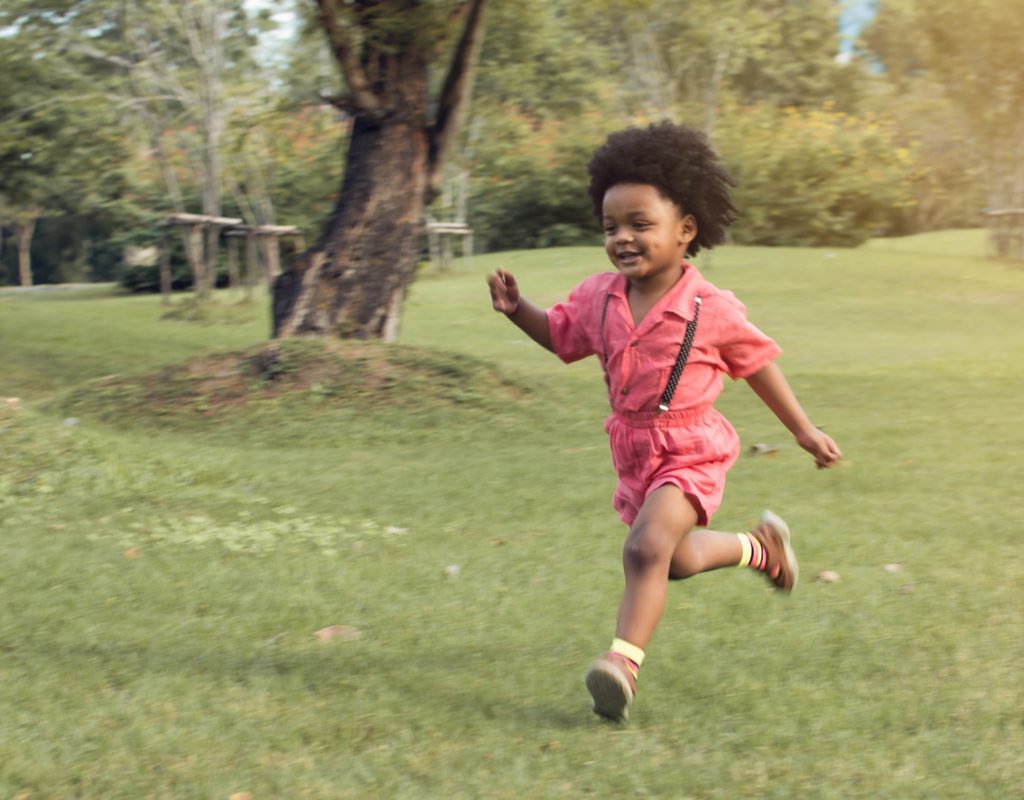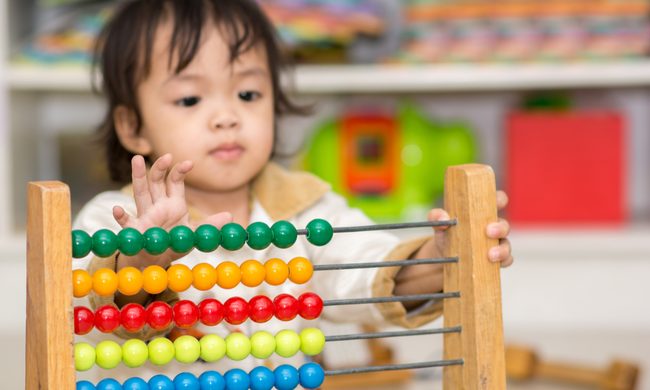Your baby is now a toddler, opening up a whole new world of discoveries and milestones. As your toddler grows, he or she will be conquering more and more of those milestones. Running, like walking, is a major gross motor milestone for your little one. Gross motor skills are movements the human body does with its larger muscles. Developing gross motor skills involve more than just muscles. Balance and cognitive development also come into play. Accomplishments such as walking, running, jumping, and skipping are important because they mean the brain, muscles, and nerves are all on point and working together. So, about when should a toddler hit the ground running?
Time to lace up your toddler’s sneakers
Your baby officially becomes a toddler after his or her first birthday. The toddler time span runs from 1 to 3 years of age before your little one becomes a preschooler. Pediatricians expect most toddlers to begin running between 18 to 24 months, but the key word here is “most.” There is a huge range that is considered by doctors to be normal as far as when a toddler starts running. If your child is a late walker, chances are he or she will take a bit before bolting away at top speed at the most inopportune times.

When is not running a red flag?
Since gross motor milestones for toddlers like running and jumping are paramount, it is easy to become worried when other toddlers are racing around on the playground and yours isn’t, but try not to stress. Before a toddler can take off running, he or she needs to build up the necessary muscles as well as balance. Cues a toddler is ready to start running are when he or she has begun to master skills like walking up and down stairs confidently, bouncing, and even dancing when a favorite tune comes on.
There are certain red flags that if noticed should be brought to the attention of your pediatrician. If your toddler walks on his or her toes most of the time or if one side of the body doesn’t seem to be in sync with the other are two to mention to your doctor.
Flat-footedness is pretty common in toddlers because arches develop as children grow though some people never do, which won’t impact running development. Pigeon toes or intoeing is another issue often noticed in toddlers. This too usually corrects itself and also isn’t thought to hinder gross motor development.
My toddler isn’t running
It’s hard not to stress when it comes to your toddler, but stressing over your child not zipping down the grocery aisles like a playmate won’t help he or she start running any sooner. If your toddler doesn’t have any of the previous red flags and is in the midst of the wide range of normal pediatricians have for running, then take a step back. Try not to compare your toddler to playmates, relatives, or siblings. There aren’t any hard and fast rules for early childhood development, and some children just take longer to reach certain milestones than their peers.
Since gross motor development is essential to running, make sure you’re giving your toddler plenty of time each day to work his or her leg muscles. Life is busy, and if toddlers are going from the car seat to the stroller, they may not be getting enough opportunity to stretch their legs.
When doing short quick errands with your toddler, skip the stroller and have him or her walk. If you’re picking up a sibling at school, park a little farther away and have your toddler walk to the pickup door or the bus stop to meet big brother or sis. In the house, make sure your toddler has ample room to roam around freely and safely. This will help build up their confidence.

Time to run
When your toddler finally does start running, remember it’s not always a smooth transition. Just like walking, toddlers new to running may be unsteady and fall a lot. They will also try to test their newfound skill indoors, so it’s probably a good idea to keep the baby gates up a while longer.
As your toddler learns to navigate this developing skill, it also takes a bit of time to process commands like “stop” or “slow down.” Remember, running involves muscle movement and cognitive functions, so your toddler won’t be able to stop on a dime. Eventually, he or she will get it. Keep giving those gentle reminders because as your toddler picks up speed, he or she will become harder to catch.
It is extremely difficult to not worry about your child’s development. Most toddlers are off and running by 2. At your well visit, the doctor or nurse will typically ask about major milestones like running, but if you’re concerned, bring up the topic at your toddler’s next appointment. In the meantime, be conscious of giving your toddler ample opportunities to develop their gross motor skills through walking and play. Before you know it, he or she will be zipping around the playground with the rest of the kids.


